Journalist, grad student file lawsuit for more info on Jeff Sessions
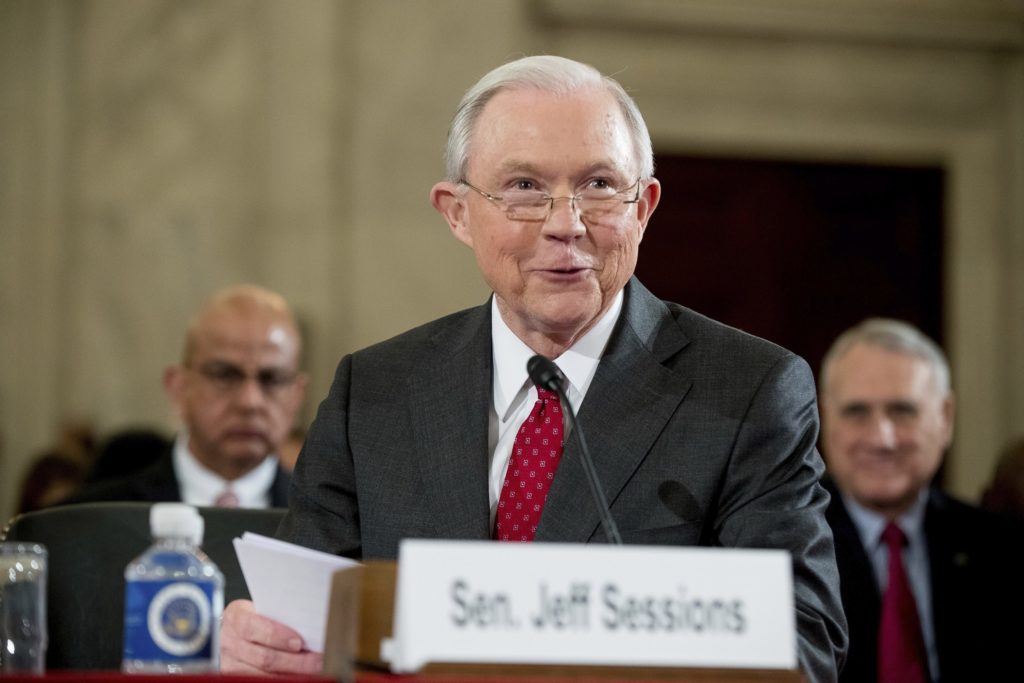
An investigative reporter joined a graduate student to file a lawsuit this week against eight federal agencies seeking more information on Alabama Sen. Jeff Sessions, Donald Trump’s Attorney General nominee. First reported by Lydia Wheeler in The Hill, journalist Jason Leopold and Ryan Shapiro, a Massachusetts Institute of Technology (MIT) doctoral candidate, filed the suit Tuesday in U.S. District Court for the District of Columbia. The two argue the records will shed more light on Sessions’ career as a state and federal attorney general and lawmaker. The suit accuses the agencies of failing to comply with requests under the Freedom of Information Act (FOIA). Agencies named in the suit are the Department of Justice, the Equal Employment Opportunity Commission, the State Department, the Department of Homeland Security, the Department of Defense, the Securities and Exchange Commission, the Environmental Protection Agency and the National Security Agency. Wheeler writes that Leopold and Shapiro have also sued the CIA, FBI, the Department of Homeland Security and the Office of the Director of National Intelligence, asking for records on Russian interference in the presidential election. On Tuesday, the U.S. Senate Judiciary Committee agreed to delay a vote on Sessions’ confirmation until Jan. 31, after a request by Sen. Dianne Feinstein of California, the senior Democrat on the committee.
Senate delays Jeff Sessions’ Attorney General confirmation vote to Jan. 31
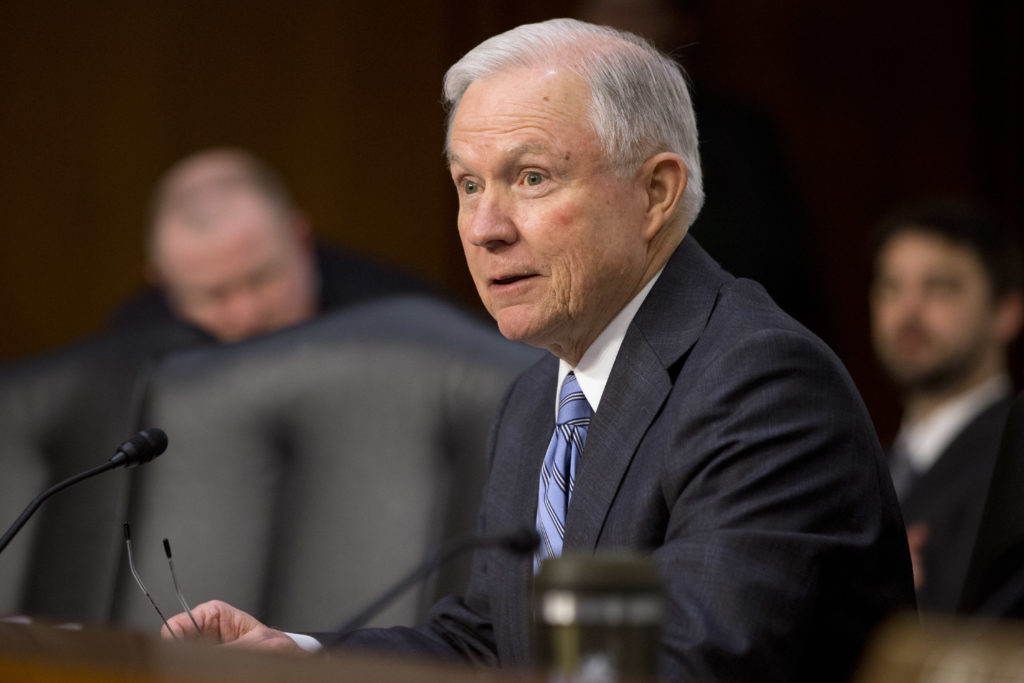
While many of President Donald Trump‘s Cabinet picks are being confirmed, Alabama Republican Sen. Jeff Sessions will have to wait another wait on his confirmation vote to be America’s next attorney general. The U.S. Senate Judiciary Committee on Tuesday announced the committee will delay a week, until Jan. 31, at the request of California Democrat Sen. Dianne Feinstein, the senior Democrat on the committee. Per the committee’s rules, any member may request a one week delay. On Sunday, Sessions submitted nearly 200 pages of written responses to questions to the committee. Feinstein said she and her Democratic colleagues need more time to review the responses. A spokesman for Feinstein said she requested the extra week “to give the committee more time to conduct its due diligence.” The panel was scheduled to vote on Sessions’ nomination during a Tuesday morning committee meeting, but when Iowa-Republican Sen. Chuck Grassley, the committee’s chairman, convened he noted that Democrats wanted to delay the nomination, and said, “of course I’ll honor that request” per the committee’s rules. The committee’s approval is a first step to Sessions’ confirmation being scheduled for a full Senate vote. Despite Democratic opposition, Sessions is expected to be confirmed when his nomination makes its way to the Senate floor.
6 state AGs urge rejection of Jeff Sessions for attorney general
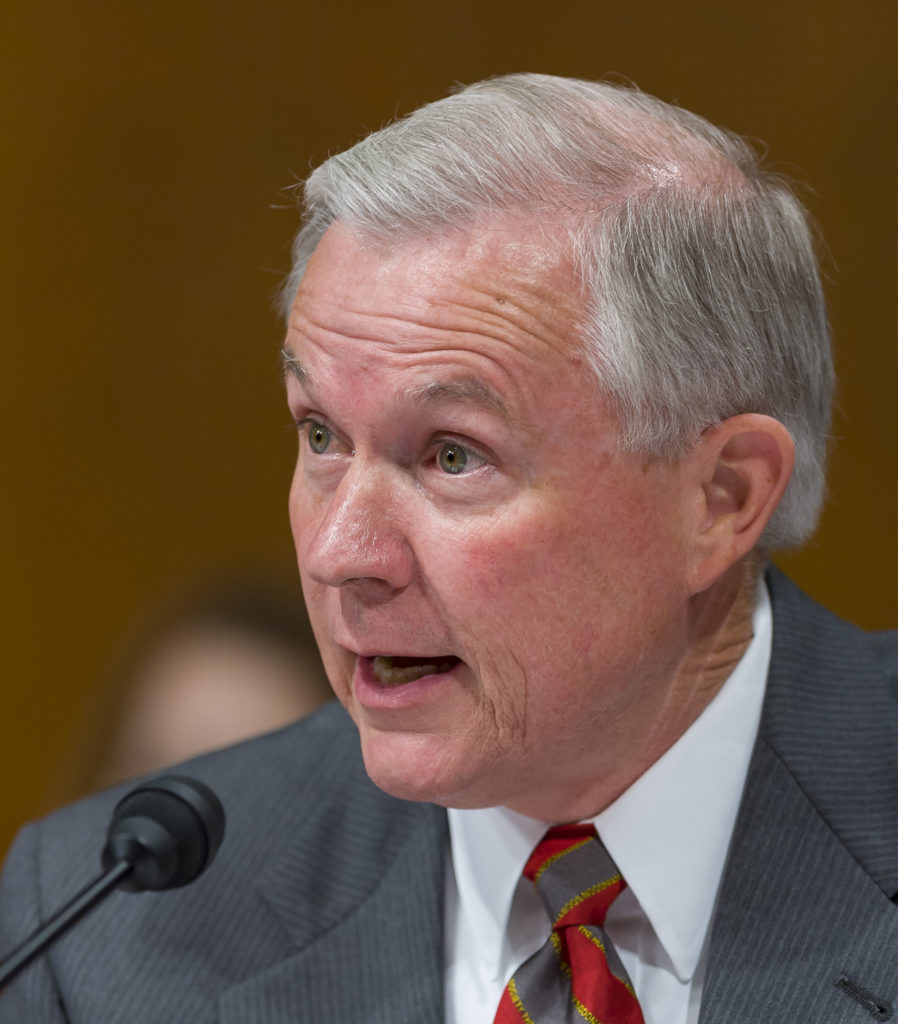
Attorneys generals from six states, including New York’s Eric Schneiderman, have sent a letter urging the Senate Judiciary Committee to reject the nomination of Sen. Jeff Sessions for attorney general. In the letter dated Jan. 17, the prosecutors said they had “grave concern” that Session would “diligently and fairly enforce all laws protective of civil rights, public safety, health and welfare.” The letter said Sessions made bigoted statements in the past, rejected sensible, criminal justice policy reforms, and badly managed his office during his tenure as Alabama Attorney General. Attorneys General Ellen Rosenblum of Oregon, Brian Frosh of Maryland, Maura Healey of Massachusetts, Doug Chin of Hawaii and Karl Racine of the District of Columbia also signed the letter. Sessions is expected to win confirmation in the GOP-led Senate. Republished with permission of The Associated Press.
Jeff Sessions confirmation hearing ends
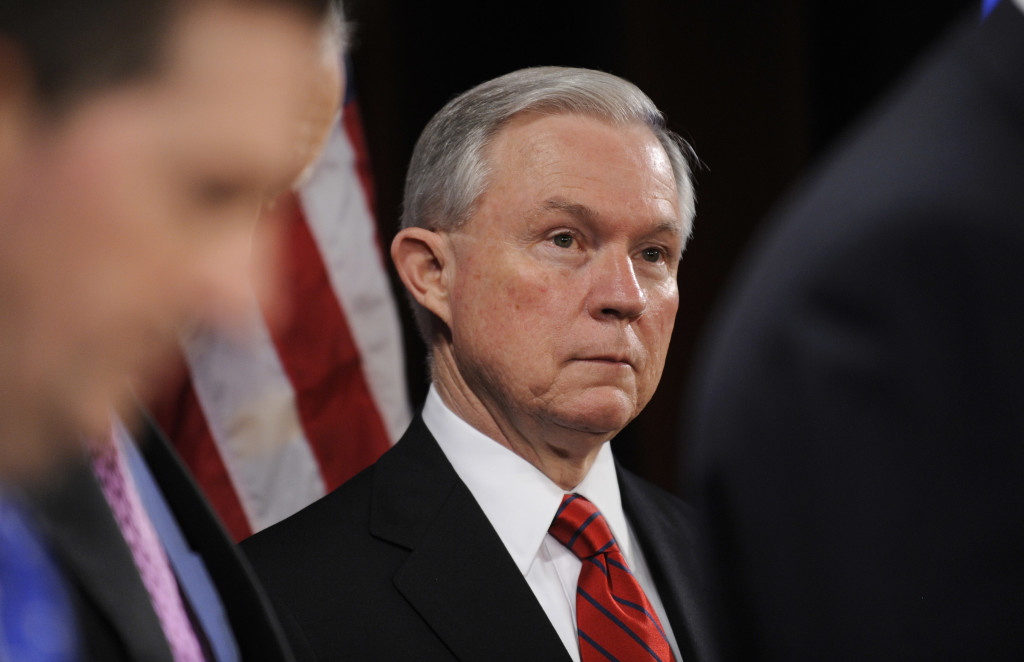
After two days, Sen. Jeff Sessions‘ confirmation hearing to be the next attorney general has ended. At roughly 2:00 p.m. ET on Wednesday Sen. Chuck Grassley dropped the final gavel in the Senate Judiciary Committee, putting an end to the committee’s probing questions and testimonies. The vote to confirm Sessions will take place after Donald Trump is inaugurated next week.
Black lawmakers to speak out against Jeff Sessions in hearing
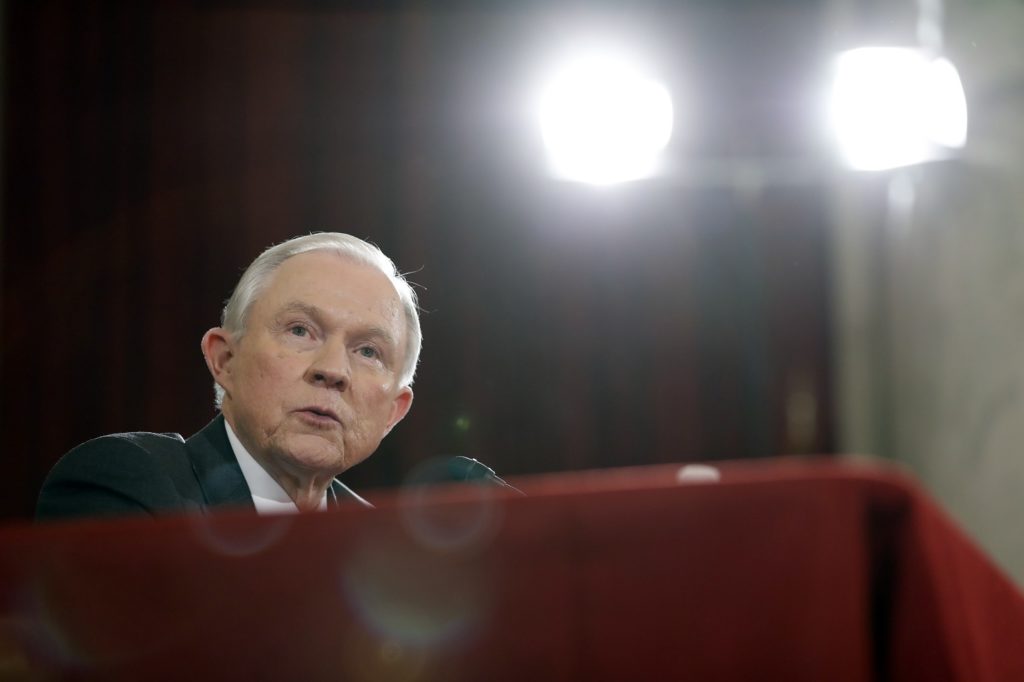
Donald Trump‘s pick for attorney general, Sen. Jeff Sessions, used strong words in the first day of his Senate confirmation hearings to deny any hints of a racist past. On day two, a group of black lawmakers will speak out against his nomination — including New Jersey Democrat Cory Booker, who will take the rare step of testifying against a current Senate colleague. Booker’s testimony underscores Democratic unease with the Alabama Republican, who was rejected for a federal judgeship by the Senate Judiciary Committee three decades ago amid accusations of racial impropriety. Sessions on Tuesday called those accusations “damnably false,” denying that he had ever called the NAACP “un-American” and saying he had never harbored racial hostility. He said the allegations – which included that he had referred to a black attorney in his office as “boy” – are part of a false caricature. “It wasn’t accurate then,” Sessions said. “It isn’t accurate now.” Sessions has solid support from the Senate’s Republican majority and from some Democrats in conservative-leaning states, and is expected to easily win confirmation. Still, he faces a challenge persuading skeptical Democrats that he’ll be fair and committed to civil rights, a chief priority of the Justice Department during the Obama administration, as the country’s top law enforcement official. Republicans on the panel defended Sessions, with Texas Sen. Ted Cruz describing how Sessions helped secure convictions in a 1981 murder of a black teenager when he was a federal prosecutor. Two Ku Klux Klan members, Henry Hays and James Knowles, were arrested and convicted. “I know we need to do better, we can never go back,” Sessions said. “I am totally committed to maintaining the freedom and equality that this country has to provide to every citizen, I can assure you.” Booker calls his opposition “a call to conscience” and said he didn’t make the decision to speak at the hearing lightly. “The attorney general is responsible for ensuring the fair administration of justice, and based on his record, I lack confidence that Senator Sessions can honor this duty,” Booker said. Senate officials searched and could find no other case in the country’s history when a sitting senator testified against a colleague picked for a Cabinet post. Civil rights icon Rep. John Lewis, a Georgia Democrat, is also expected to testify against Sessions. Congressional Black Caucus Chairman Rep. Cedric Richmond, a Democrat from Louisiana, also will be appearing, as will David Cole, the legal director of the American Civil Liberties Union. Sessions also will have advocates in the hearing room Wednesday, including former Attorney General Michael Mukasey. As Sessions was questioned Tuesday, protesters repeatedly interrupted the proceedings. Some loudly called Sessions a racist, and two were dressed as members of the Klu Klux Klan. They were quickly hustled out by police. In his testimony, Sessions laid out a sharply conservative vision for the Justice Department he would oversee, pledging to crack down on illegal immigration, gun violence and the “scourge of radical Islamic terrorism.” He vowed to stay independent from the White House and stand up to Trump when necessary. He also distanced himself from some of Trump’s public pronouncements. Sessions said waterboarding, a now-banned interrogation technique for which Trump has at times expressed support, was “absolutely improper and illegal.” Though he said he would prosecute immigrants who repeatedly enter the country illegally and criticized as constitutionally “questionable” an executive action by President Barack Obama that shielded certain immigrants from deportation, he said he did “not support the idea that Muslims, as a religious group, should be denied admission to the United States.” Trump earlier in his campaign called for a temporary total ban on Muslims entering his country but has more recently proposed “extreme vetting.” And Sessions asserted that he could confront Trump if needed, saying an attorney general must be prepared to resign if asked to do something “unlawful or unconstitutional.” He also promised to recuse himself from any investigation there might be into Democrat Hillary Clinton, whom he had criticized during the presidential campaign. Trump said during the campaign he would name a special prosecutor to look into Clinton’s use of a private email server, but he has since backed away. The FBI and Justice Department declined to bring charges last year. Sessions was first elected to the Senate in 1996 and before that served as Alabama attorney general and a U.S. attorney. He’s been a reliably conservative voice in Congress, supporting government surveillance programs, objecting to the proposed closure of the Guantanamo Bay detention facility – a sharp departure from Obama’s Justice Department – and opposing a 2013 bipartisan immigration bill that included a pathway to citizenship for the estimated 11 million immigrants living in the U.S. illegally. Republish with permission of The Associated Press.
Alabama delegation praises Jeff Sessions after day 1 of confirmation hearing
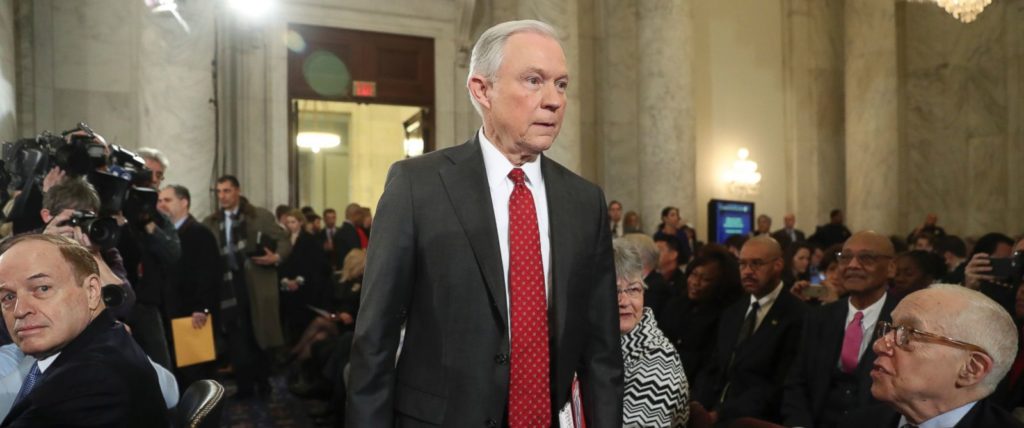
Shortly after the first day of Sen. Jeff Sessions‘ confirmation hearing in the Senate Judiciary Committee, his Alabama colleagues were signing his praises saying the senator handled himself well and would make for a great attorney general. Here’s what the Alabama delegation had to say: Alabama Sen. Richard Shelby: While it was a long day of questioning, Senator Sessions was well-prepared and represented the state of Alabama admirably. Throughout today’s hearing, Jeff handled himself with the same humility and patience that has earned him the deep respect of his colleagues on both sides of the aisle. I am proud to call Jeff Sessions a dear friend and look forward to continuing to give him my unwavering support throughout the nomination process. He is a man of great integrity who will apply the law fairly to all Americans, and I have no doubt that he will be confirmed by the Judiciary Committee as well as the full Senate. Alabama 1st District U.S. Rep. Bradley Byrne: Senator Sessions’ ethical nature, dedication to public service, and commitment to the rule of law shined throughout his confirmation hearing today. He showed great poise and a deep understanding on a wide range of important issues. The petty political attacks on his character fell flat, and Senator Sessions just further indicated why he is the perfect choice to lead the Justice Department. Alabama 2nd District U.S. Rep. Martha Roby: Senator Sessions really knocked it out of the park today. He was fully prepared and poised in the face of some pretty tough questioning. I’m glad that the American people are finally seeing in Jeff Sessions the principled, fair-minded leader that Alabamians have known for many years. I have no doubt the Senate will ultimately confirm Jeff Sessions as the next Attorney General of the United States. Alabama 3rd District U.S. Rep. Mike Rogers: Today, the country saw what we in Alabama have known for many years – Jeff Sessions is a man of great character. Jeff’s steady and honest performance in front of the Senate Judiciary Committee is exactly what I’d expect from him. His knowledge of the law is unmatched. He respects the rule of law, and as Attorney General he will bring integrity to the Department of Justice. I am proud to call Jeff a colleague and friend. Alabama 4th District U.S. Rep. Robert Aderholt: Senator Sessions did a fantastic job today in front of the Senate Judiciary Committee. His knowledge of the law, his commitment to upholding the law, and his desire for justice was on full display today. He demonstrated what the people of Alabama already know, that he will make a great United States Attorney General. Alabama 5th District U.S. Rep. Mo Brooks: Senator Jeff Sessions made the State of Alabama proud with his display of honor and dignity during today’s U.S. Senate Attorney General confirmation hearing. I have been fortunate to know Senator Sessions for more than 20 years and admire him as a dedicated public servant of strong moral character, committed to upholding the rule of law. Today, Senator Sessions promised to restore respect and support for America’s law officers, protect religious freedoms across the country, and enforce federal immigration laws. President-elect Donald Trump selected the right man to serve as America’s next United States Attorney General and I look forward to his expeditious confirmation. Alabama 6th District U.S. Rep. Gary Palmer: I have always believed that Senator Jeff Sessions would make an excellent United States Attorney General. Today Senator Sessions showed the American people his outstanding record and that he is a man of deep and unwavering integrity. I am confident the Senate Judiciary Committee will come together and favorably report Senator Sessions’ appointment to be the next Attorney General. Under Senator Sessions’ leadership, the Department of Justice will uphold and enforce the laws and the Constitution. The Committee will reconvene Wednesday at 9:30 a.m. ET to resume its confirmation proceedings. No more testimony is expected from Senator Sessions himself. Live coverage of the hearing is available on Alabama Today.
Jeff Sessions: there was an organized effort to caricature me as something that wasn’t true
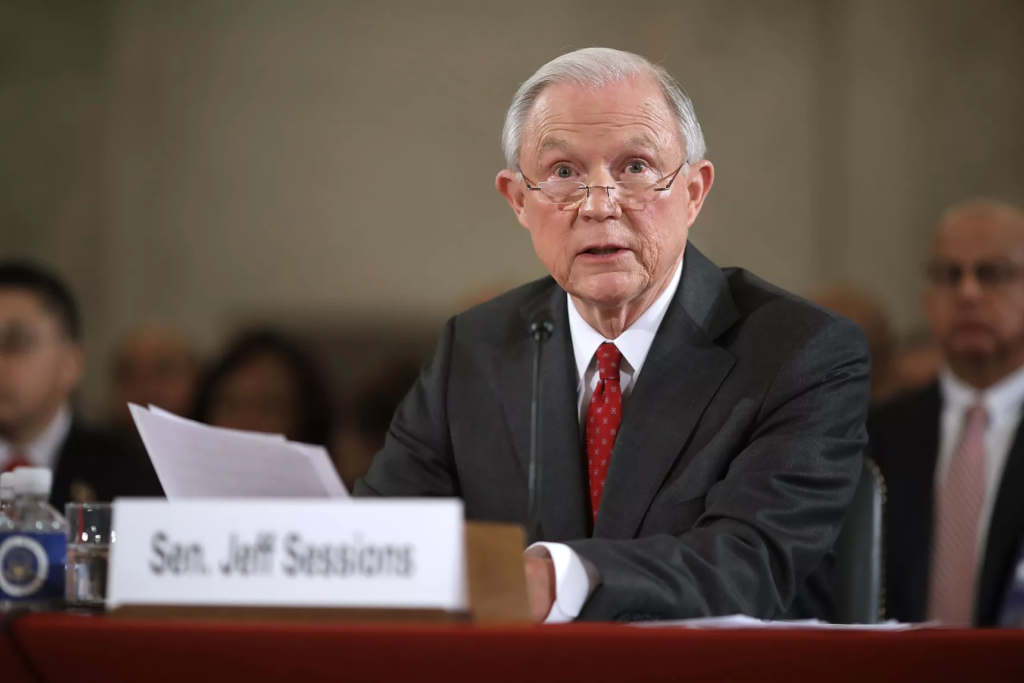
Sen. Jeff Sessions addressed accusations of racism Tuesday during his Senate confirmation hearing for U.S. Attorney General — explaining he was first unfairly caricatured as racist during his 1986 confirmation hearing to be President Ronald Reagan’s nominee for U.S. District Judge for the Southern District of Alabama. “When I came up as a United States Attorney, I had no real support group, I didn’t prepare myself well in 1986, and there was an organized effort to caricature me as something that wasn’t true,” Sessions said before the Senate Judiciary Committee. “I hope my tenure in this body has shown you that the caricature that was created of me was not accurate. It wasn’t accurate then, and it’s not accurate now,” he continued. Fellow Southern, Republican Sen. Lindsey Graham asked Sessions, “I am from South Carolina so I know what it means to be accused of being a conservative from the South — meaning a racist or a bigot. How does that make you feel?” “It was very painful, I didn’t know how to respond, and didn’t respond very well. I hope my tenure in this body has shown you that the caricature that was created of me wasn’t accurate, it wasn’t accurate then and it’s not accurate now,” the junior senator from Alabama added. Sessions was denied the federal judgeship in 1986 after issues were raised about comments he had made regarding the Klu Klux Klan. Tuesday’s hearing is the first of two days of hearings scheduled for Sessions’ confirmation as attorney general under President-elect Donald Trump.
Opening statement: Jeff Sessions makes his case to Senate
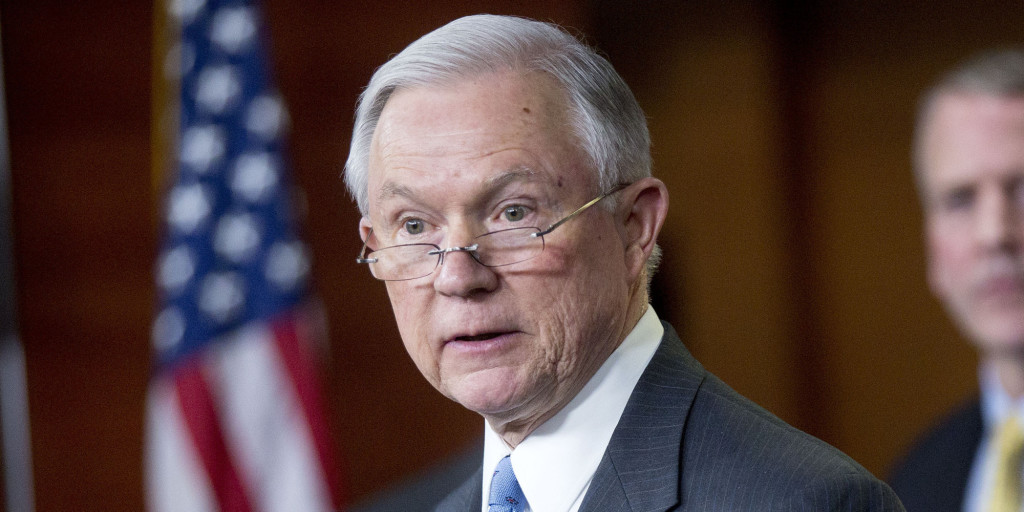
On Tuesday morning, Alabama Sen. Jeff Sessions testified before the Senate Judiciary Committee during his confirmation hearing to be the next U.S. Attorney General. Sessions was nominated by President-elect Donald Trump shortly following the November presidential elections for the cabinet position. The transcript of Sessions’ opening statement is below: Chairman Grassley, Ranking Member Feinstein, distinguished members of the Committee, I am honored to appear before you today. I thank you for the opportunity to respond to your questions as you discharge your duty in the appointment process prescribed by our Constitution. I also want to thank my dear friends, Senator Richard Shelby and Senator Susan Collins for their kind introductions. It is hard to believe, really, that the three of us have served together in this body for nearly 20 years. When I arrived in the Senate in 1997, I probably wouldn’t have anticipated becoming so close with a colleague from Maine—two people from the northern-most and the southern-most parts of the country. It took us a while to understand each other’s accents, but once we did, we became fast friends. Of course, Senator Shelby and I never had that problem. He has been a steadfast friend and I think we’ve been a pretty good team looking out for the best interests of the great people of Alabama. Thank you both. I want to thank President-elect Trump for the confidence and trust that he has shown by nominating me to serve as the Attorney General of the United States. I feel the weight of an honor greater than I have aspired to. If I am confirmed, I commit to you and to the American people to be worthy of that office and the special trust that comes with it. I come before you today as a colleague who has worked with you for years, and with some of you for 20 years. You know who I am. You know what I believe in. You know that I am a man of my word and can be trusted to do what I say I will do. You know that I revere our Constitution and am committed to the rule of law. And you know that I believe in fairness, impartiality, and equal justice under the law. Over the years, you have heard me say many times that I love the Department of Justice. The Office of the Attorney General of the United States is not a political position, and anyone who holds it must have total fidelity to the laws and the Constitution of the United States. He or she must be committed to following the law. He or she must be willing to tell the President “no” if he overreaches. He or she cannot be a mere rubberstamp. He or she also must set the example for the employees in the Department to do the right thing and ensure that, when they do the right thing, they know the Attorney General will back them up, no matter what politician might call, or what powerful special interest, influential contributor, or friend might try to intervene. The message must be clear: Everyone is expected to do their duty. That is the way I was expected to perform as an Assistant United States Attorney. That is the way I trained my assistants when I became United States Attorney. And if confirmed, that is the way I will run the Department of Justice. In my over 14 years in the Department of Justice, I tried cases of nearly every kind—drug trafficking and very large international drug smuggling cases, firearms cases, other violent crimes, a series of major public corruption cases, financial wrongdoing, and environmental violations. Our office supported historic civil rights cases, and major civil cases. Protecting the people of this country from crime, and especially from violent crime, is a high calling of the men and women of the Department of Justice. Today, I am afraid, that has become more important than ever. Since the early 1980s, good policing and prosecutions have been a strong force in reducing crime. Drug use and murders are half what they were in 1980. I am very concerned, however, that the recent jump in the violent crime and murder rates are not anomalies, but the beginning of a dangerous trend that could reverse the hard won gains that have made America a safer and more prosperous place. The latest official FBI statistics show that all crime increased nearly 4 percent from 2014 to 2015—the largest increase since 1991—with murders increasing nearly 11 percent—the largest single year increase since 1971. “In 2016, there were 4,368 shooting victims in Chicago. In Baltimore, homicides reached the second highest per-capita rate ever. “The country is also in the throes of a heroin epidemic, with overdose deaths more than tripling between 2010 and 2014. Meanwhile, illegal drugs flood across our southern border and into every city and town in the country, bringing violence, addiction, and misery. We must not lose perspective when discussing these statistics. We must always remember that these crimes are being committed against real people, real victims. It is important that they are kept in the forefront of our minds in these conversations, and to ensure that their rights are always protected. These trends cannot continue. It is a fundamental civil right to be safe in your home and your community. If I am confirmed, we will systematically prosecute criminals who use guns in committing crimes. As United States Attorney, my office was a national leader in gun prosecutions every year. We will partner with state and local law enforcement to take down drug trafficking cartels and dismantle gangs. We will prosecute those who repeatedly violate our borders. It will be my priority to confront these crises vigorously, effectively, and immediately. Approximately 90 percent of all law enforcement officers are not federal, but local and state. They are the ones on the front lines. They are better educated, trained and equipped than ever before. They are the ones who we rely on to
Protesters wearing KKK outfits disrupt hearing for Jeff Sessions
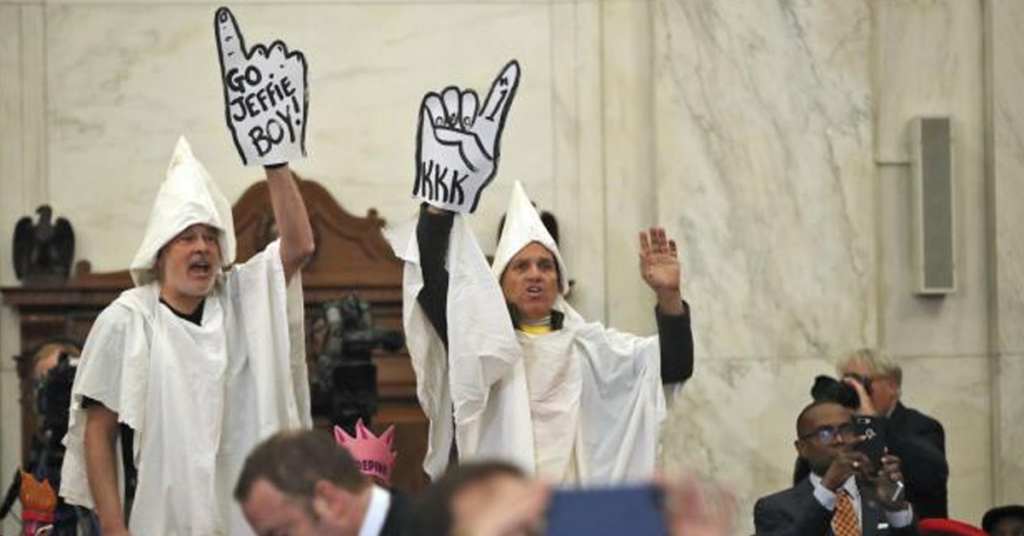
Minutes before Sen. Jeff Sessions‘ confirmation hearing began Tuesday morning, protests took the attention of the Senate Judiciary Committee. Two demonstrators dressed as Ku Klux Klan (KKK) members erupted with shouts of “white power” against Donald Trump‘s pick for attorney general. “You can’t arrest me! I’m white!” one of the protesters said as Capitol Police removed both men from the hearing room. As Sessions walked in… pic.twitter.com/4cmgzRL2q2 — Lisa Desjardins (@LisaDNews) January 10, 2017 HAPPENING NOW: Protestor thrown out of Sessions confirmation hearing. Dressed as klansman. pic.twitter.com/2DPJhg7M8M — Sam Sweeney (@SweeneyABC) January 10, 2017 Sessions gave no visible reaction to the outbursts, and proceeded to enter the room acknowledging friends and colleagues. The protests come, as the conservative Alabama senator faces concerns over how committed he would be to civil rights. “I deeply understand the history of civil rights and the horrendous impact that relentless and systemic discrimination and the denial of voting rights has had on our African-American brothers and sisters,’’ Sessions told the Senate Judiciary Committee once the hearing began. “I have witnessed it … While humans must recognize the the limits of their abilities — and I do — I am ready for this job. We will do it right.”
White House to send SCOTUS-hopeful Merrick Garland’s questionnaire to Senate
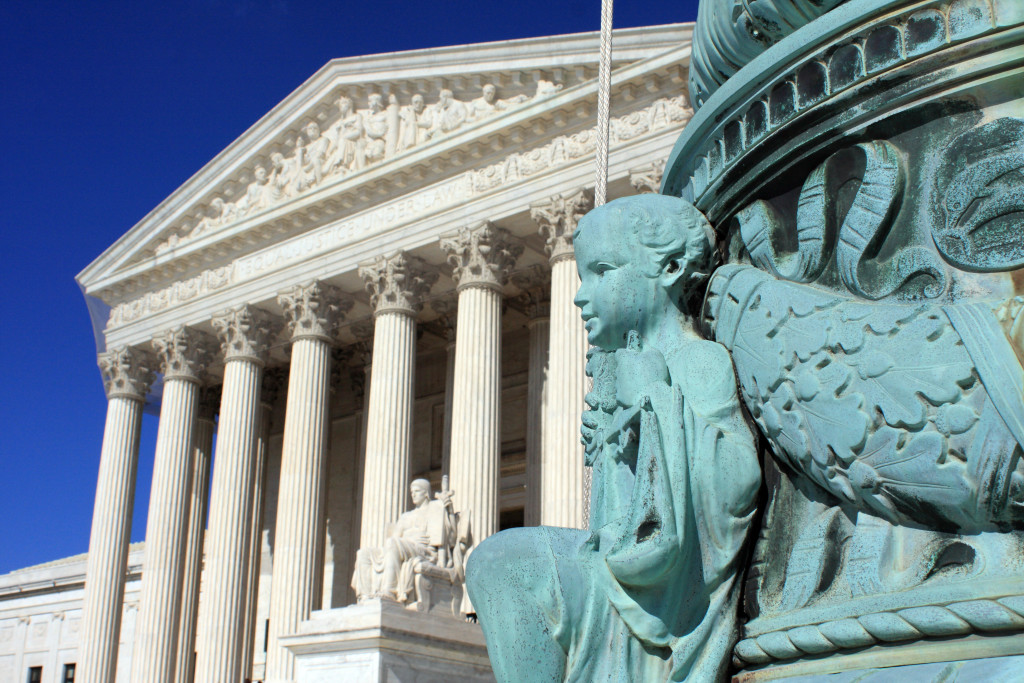
Supreme Court nominee Merrick Garland submitted a questionnaire detailing his experience to the Senate Judiciary Committee on Tuesday, another step in the White House’s effort to break a Senate blockade on his nomination. GOP Sen. Charles Grassley of Iowa, the panel’s chairman, has said he won’t consider the nomination. But the White House had Garland fill out a questionnaire, anyway. The committee posted the document online, as is routine with nominations. Garland is currently the chief judge of the U.S. Court of Appeals for the District of Columbia Circuit. In thousands of pages of documents, he lists details of his work experience, his biographical background, his memberships and associations, his most significant cases, pro bono work and financial information. His account of his most significant opinions includes one that upheld a ban on campaign contributions from federal contractors. Another affirmed the application of the Endangered Species Act to a commercial real estate project that threatened a protected toad. Two others sided with people mounting job discrimination lawsuits. In his long career on the bench and as a Justice Department official before that, Garland developed a reputation for being pro-prosecutor and pro-government. But in his listing of significant opinions, he includes one case in which he voted to throw out a criminal conviction for a drug trafficking conspiracy, a second dissenting opinion in which he would have allowed lawsuits to continue against private contractors over allegations of abuse at the Abu Ghraib prison in Iraq and a third that sided with a Uighur detainee at Guantánamo Bay who challenged his status as an “enemy combatant.” He also cites his role as a federal prosecutor in the 1995 Oklahoma City bombing case and the prosecution of Unabomber Ted Kaczynski as two of his most significant cases as a lawyer before becoming a judge. Garland reported that he was first called by the White House about the Supreme Court vacancy on Feb. 29 — 16 days after Justice Antonin Scalia‘s death. He said he was interviewed by President Obama on March 9, a week before Obama announced his nomination. The White House said the questionnaire was intended to present “an exhaustive picture” of Garland’s service on the bench and of his “impeccable credentials.” The questionnaire is a standard early step in the vetting of any judicial nominee. The lengthy survey typically is drafted by the committee, completed by the nominee, and then reviewed and made public by the committee in advance of committee hearings. In this case, Grassley’s panel didn’t send a questionnaire to Garland because Republicans said they have no intention of acting on his nomination. So the White House had Garland fill out what it described as a standard form and sent it, unsolicited, to the committee. So in Garland’s atypical nomination, the questionnaire has become another tool in the White House pressure campaign. Senate Republicans have maintained that the next president should choose the Scalia’s replacement. Shortly after the questionnaire was posted online, Senate Democrats used it to call once more on Republicans to hold hearings and vote. In a news conference, Democrats on the Judiciary Committee warned Republicans that presumptive GOP presidential nominee Donald Trump could pick the next justice. Illinois Democratic Sen. Dick Durbin joked that Trump might bring television personality Judge Judy out of retirement. “I don’t want to make light of the situation because it’s extremely serious,” Durbin said. “But imagining Donald Trump picking a Supreme Court justice is something I never thought would cross my mind.” Garland has been meeting privately with senators on so-called courtesy visits and conducted some prep sessions with the White House. He’s scheduled to meet Tuesday with Sen. Ron Johnson, R-Wisc., and Sen. Brian Schatz, D-Hawaii, the White House said. “We expect that upon receiving the questionnaire, Senate Judiciary Committee members will do their jobs by reviewing the information, scheduling a hearing so that the American people can hear directly from Chief Judge Garland as he answers questions under oath, and giving him a fair up or down vote,” Hoffine said. Garland plans to continue his meetings with lawmakers this week. Garland is slated to meet with Democratic Sens. Barbara Mikulski of Maryland, Ed Markey of Massachusetts and Tom Carper of Delaware, on Wednesday and Sen. Jon Tester of Montana on Thursday, the White House said. Republished with permission of The Associated Press.
Bills to increase porn penalties pass Senate Judiciary Committee

Two bills aimed at stemming the flow of pornographic material passed the Senate Judiciary Committee Wednesday. One, providing further penalties for people disseminating explicit photos of persons under 17 and the other tackling the issue of “revenge porn” as used to harass a former partner. Ward’s SB179 that a person found guilty of transmitting or possessing pornographic photos of a minor must register as a sex offender. The bill removes the current requirement that the transmission require a monetary exchange to be a punishable offense and includes “breast nudity” as a possible offense. SB342 from Sen. Vivian Figures (D-Mobile) makes it a Class A felony to unknowingly film a sexual partner and display such recordings online or otherwise. Figures noted that the bill was brought to address “revenge porn,” which has gained popularity with the advent of mass social media use.
Barack Obama signals Supreme Court announcement could come soon
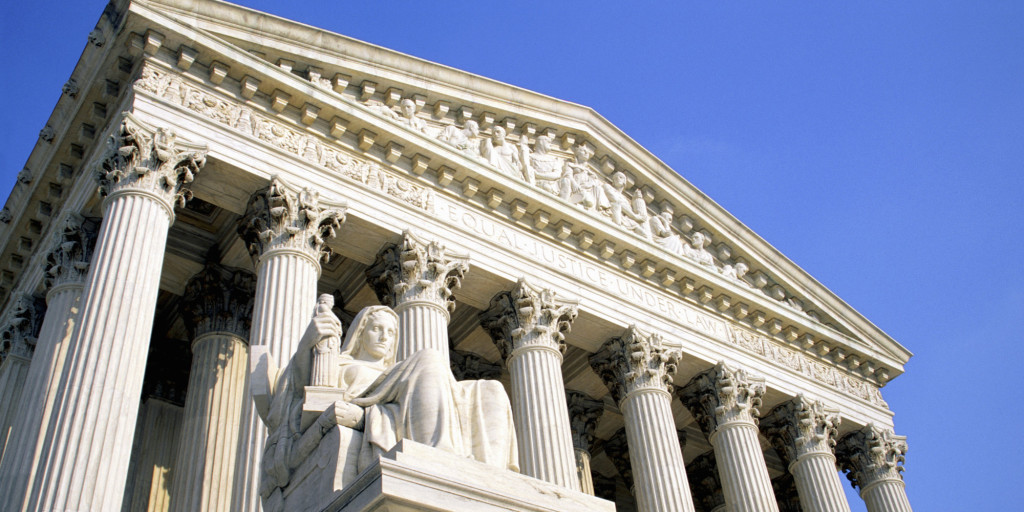
President Barack Obama on Thursday signaled that his announcement of a Supreme Court nominee could come soon, saying the nation’s highest court needs to operate at full strength. Obama did not say when he would reveal his choice to succeed the late Justice Antonin Scalia, who died last month. Senate Republicans have promised to ignore the nominee. “I think it’s important for me to nominate a Supreme Court nominee quickly because I think it’s important for the Supreme Court to have its full complement of justices,” he said during a White House news conference with Canadian Prime Minister Justin Trudeau. Obama said he wants an “outstanding jurist” with “impeccable legal credentials, who, by historical standards, would not even be questioned as qualified for the court.” In the hours after Scalia’s death in mid-February, Senate Republican leaders pledged to block any Obama nominee, saying the president who is elected in November should get to make that pick. “So in terms of who I select, I’m going to do my job,” Obama said. “And then my expectation is going to be will the Senate do its job as outlined in the Constitution?” Obama brushed aside the notion that the contentious confirmation process would limit his field of potential choices. His advisers planned to discuss the vacancy at the White House on Thursday with Democrats on the Senate Judiciary Committee. “I don’t feel constrained in terms of the pool to draw from or that I’m having to take shortcuts in terms of the selection and vetting process,” he said. In his search for a successor to Scalia, Obama is zeroing in on a small group of appellate court judges with largely traditional credentials and a history of bipartisan backing. That suggests the White House plans to challenge the Republican Senate to block a nominee whose pedigree might have paved the way for a relatively easy confirmation, if the fight weren’t playing out in an election year. Among the candidates in Obama’s top tier are, according to a source familiar with the selection process: Judge Sri Srinivasan of U.S. Court of Appeals for the District of Columbia Circuit. Merrick Garland, chief judge on the same court. Judge Paul Watford of the 9th U.S. Circuit Court of Appeals. Ketanji Brown Jackson, a district court judge in Washington, is also under consideration, although a less likely option, said the source, who was not authorized to publicly discuss private White House deliberations and spoke on condition of anonymity. The judges’ inclusion on the short list was first reported by National Public Radio, which also named Judge Jane Kelly of the 8th U.S. Circuit Court of Appeals as a finalist being interviewed by the president. The emerging list, which the White House says is not final, seems in line both with Obama’s personal and political aims. As he has in his past two nominations, Obama appears drawn to candidates with traditional resumes – Supreme Court clerkships, prestigious posts in government and stints at major law firms. The list also shows the president grappling with whether to add racial or gender diversity to the court. Srinivasan, 49, would be the first Indian-American on the court, while Watford, 48, would be the third African-American to hold a seat. Brown Jackson, 45, would be the first African-American woman. The White House has stressed that the nominee will have “impeccable” credentials, suggesting that person will have a record so sterling it will shame GOP senators into backing down. Obama’s consideration of Garland appears to fit that approach. Garland, a white 63-year-old with an Ivy League, East Coast background, would not add diversity to the court. But with a reputation as a judicial moderate and with broad respect in Washington, Garland could put maximum pressure on some GOP senators to crack from leadership opposition. Both Srinivasan and Watford come with some bipartisan endorsement. Srinivasan was unanimously confirmed to the bench in 2013. Watford’s confirmation vote was 61-34. As Obama appointments, neither comes with long records on the bench, leaving their judicial philosophies somewhat ambiguous. On the short list, only Kelly, a former public defender in Iowa, did not follow the traditional ladder to the highest court. The risks associated with her experience have already emerged. In recent days, conservative groups raised questions about Kelly’s work securing a plea deal for a man facing child pornography charges. After two decades as a criminal defense lawyer, similar cases are likely in her background. Republished with permission of the Associated Press.


